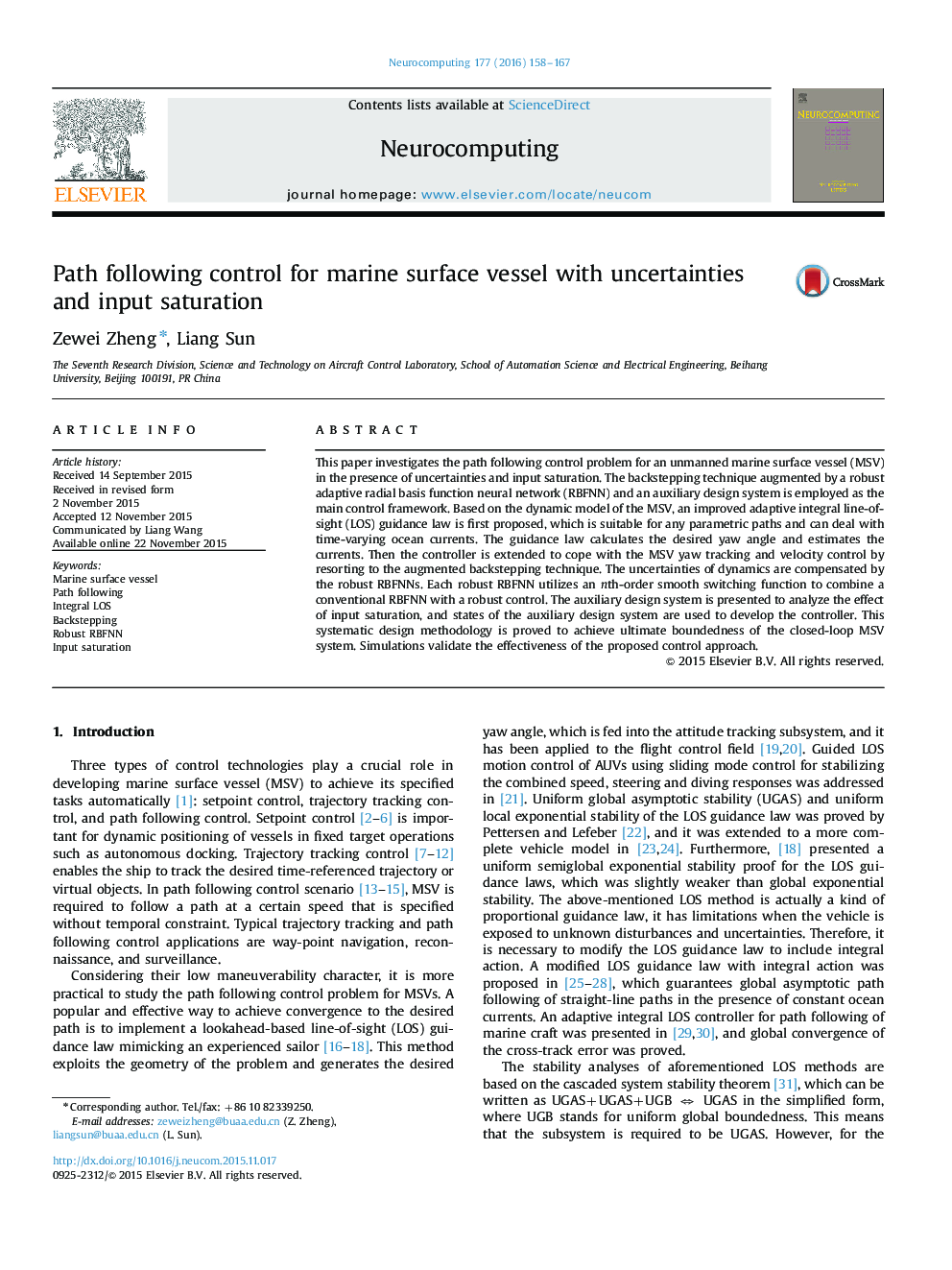| Article ID | Journal | Published Year | Pages | File Type |
|---|---|---|---|---|
| 408957 | Neurocomputing | 2016 | 10 Pages |
This paper investigates the path following control problem for an unmanned marine surface vessel (MSV) in the presence of uncertainties and input saturation. The backstepping technique augmented by a robust adaptive radial basis function neural network (RBFNN) and an auxiliary design system is employed as the main control framework. Based on the dynamic model of the MSV, an improved adaptive integral line-of-sight (LOS) guidance law is first proposed, which is suitable for any parametric paths and can deal with time-varying ocean currents. The guidance law calculates the desired yaw angle and estimates the currents. Then the controller is extended to cope with the MSV yaw tracking and velocity control by resorting to the augmented backstepping technique. The uncertainties of dynamics are compensated by the robust RBFNNs. Each robust RBFNN utilizes an nth-order smooth switching function to combine a conventional RBFNN with a robust control. The auxiliary design system is presented to analyze the effect of input saturation, and states of the auxiliary design system are used to develop the controller. This systematic design methodology is proved to achieve ultimate boundedness of the closed-loop MSV system. Simulations validate the effectiveness of the proposed control approach.
